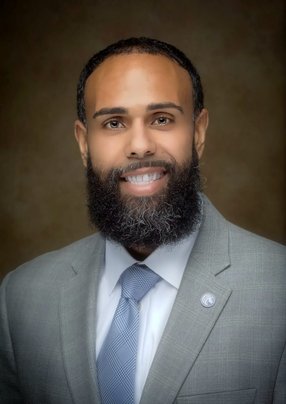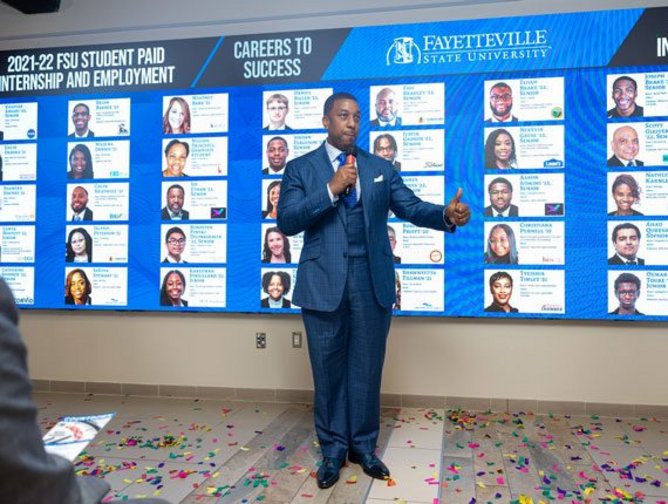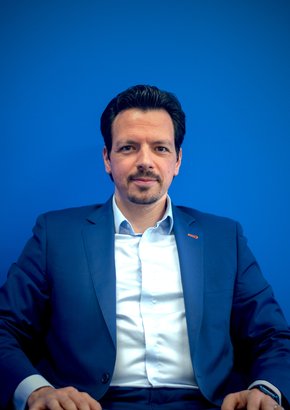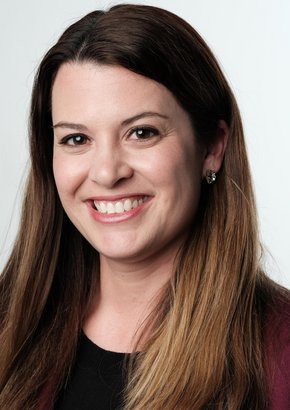
Dr. Hector Molina
Vice Chancellor for Information Technology and Chief Information Officer at Fayetteville State University

Not only an inspirational leader, but one driven by opportunity—and providing a service to the next generation seeking opportunities—Dr. Hector M Molina, Vice Chancellor for Information Technology and Chief Information Officer, is the man at the helm of change at Fayetteville State University (FSU).
Taking inspiration from his own experiences as a fresh-faced 18-year-old joining the military, Dr. Molina understands how tough the working environment can be. Utilising a history of discipline and career excellence, he is driven to support the students at FSU and give them the best chances to succeed in an evolving digital landscape.
While discussing the university’s digital transformation from his own perspective, Dr. Molina remains humble about his abilities as a leader, while also conscious of his own qualities that lead the team to succeed.
And if he could describe himself in three words?
“I’m open, flexible, and adaptable,” Dr. Molina says. “I’ve never put myself in a box. I often put myself in uncomfortable positions that I knew, at the end of the day, will help me grow as a leader, and as a technology professional.”
His role at FSU is critical yet rewarding. Inspired by a manager he worked with around 15 years ago, Dr. Molina echoes the same support and drive that was injected into him—and he does it by ensuring students have access to the technology they need to be successful. This is achieved by adopting technology services to secure students’ devices, providing cloud solutions for them to remotely access their course resources wherever they are, and encouraging the use of tools that will give them a competitive edge in the working environment.
Although Dr. Molina’s CV sports a long list of roles in the realm of IT, his foundation in IT and communications skills rooted early with his experiences in the U.S. Marine Corps, in which he worked as an IT and Telecommunications Supervisor—serving as a Sergeant.
Since those formative years, he’s achieved numerous accreditations; so much so that it would be prudent to hold him aloft as the perfect model for continuous development. Quite remarkably, Dr. Molina holds a Doctorate in Business Administration and three Master’s degrees, as well as 18 industry certifications in topics like project management, security, and IT-specific disciplines.
As a leader, not only is he tasked with many of the final decisions within the team, but he also appreciates the importance of collaboration and understanding the views of those he works with. While he surrounds himself with individuals that can teach him new things on a daily basis, as a leader, he knows that his decisions and teachings are crucial to the success of this in his charge.
“I always tell my team—and other individuals that get to know me—that I’m an imperfect leader, but I’m always striving for self-improvement,” Dr. Molina says. “In my opinion, self-reflection is a big part of being a good leader, and the advice that I would give folks coming in is, ‘be a self-starter, be ambitious, be bold, and be willing to change’.
“Technology changes every day. What we thought about it 10 years ago is certainly not representative of it today, and it won’t be in the next five to seven years.”
This is a thought process that allows Dr. Molina to adapt rapidly to the changing working environment and leverage digital technologies to ensure the best approach is taken for every challenge. He states that being flexible and adaptable is a “good virtue to have in the tech field”. And, indeed, in life.
Read the full story HERE


- Adobe Creative Campus is transforming teaching and learningDigital Transformation
- Adobe Creative Campus is transforming teaching and learningDigital Transformation
- FSU transforms to support the next-generation professionalsDigital Transformation
- FSU transforms to support next-generation professionals
Featured Interviews
We’ve built some unique features into our insurance program specifically because we’ve listened to courier partners in every country






